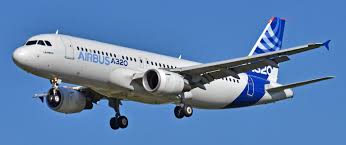The Airbus A320: Revolutionizing Commercial Aviation

Introduction
The Airbus A320 series is one of the most significant advancements in commercial aviation history. Since its introduction in 1988, this aircraft has transformed the way airlines operate, offering efficiency, comfort, and technological innovation. With a focus on fuel efficiency and passenger comfort, the A320 has become a favorite among airlines and travelers alike, particularly in the era of rising fuel prices and environmental concerns.
A Brief Overview of the A320 Series
The Airbus A320 family encompasses several variants, including the A318, A319, A320, and A321, each designed to meet varying airline needs for capacity and range. The A320 is known for its modern cockpit, employing digital fly-by-wire flight control technology, which enhances safety and simplifies operation for pilots.
Recent Developments and Usage
As of October 2023, the A320 series continues to be a leading choice for low-cost carriers and major airlines. Identifying innovations such as the incorporation of the latest generation engines, airlines have been able to achieve significant reductions in fuel consumption, contributing to a lower carbon footprint. For instance, the A320neo, introduced in 2016, boasts up to 20% lower fuel costs compared to its predecessors, making it an attractive option for operators facing rising operational costs.
Recent data shows that as of September 2023, there are over 10,000 Airbus A320 family aircraft in service globally, a testament to its popularity and reliability. Major airlines, including American Airlines, Lufthansa, and Delta, count A320 aircraft among their fleets, utilizing them for both domestic and international routes.
Industry Impact and Future Predictions
The impact of the A320 series extends beyond operational efficiency. It has also influenced modern airport design and scheduling, allowing airlines to maximize turnarounds and enhance passenger flow due to its medium-sized capacity. Moreover, with the rise of sustainable aviation initiatives, the A320’s focus on efficiency aligns well with the industry’s shift towards cleaner, greener technologies.
Looking to the future, Airbus is preparing to enhance the A320 family with further technological advancements, including improved aerodynamics and potential hybrid-electric propulsion systems. As the aviation industry rebounds from the COVID-19 pandemic, projections suggest that the demand for A320 aircraft will continue to rise, solidifying its position as a cornerstone of commercial aviation.
Conclusion
The Airbus A320 series represents a milestone in aviation that continues to shape the industry. Its adaptability, efficiency, and innovative spirit have not only defined air travel equality for millions of passengers but have also set industry standards for many years to come. Understanding the significance of the A320 helps readers appreciate the future of air travel and its role in a sustainable global economy.


